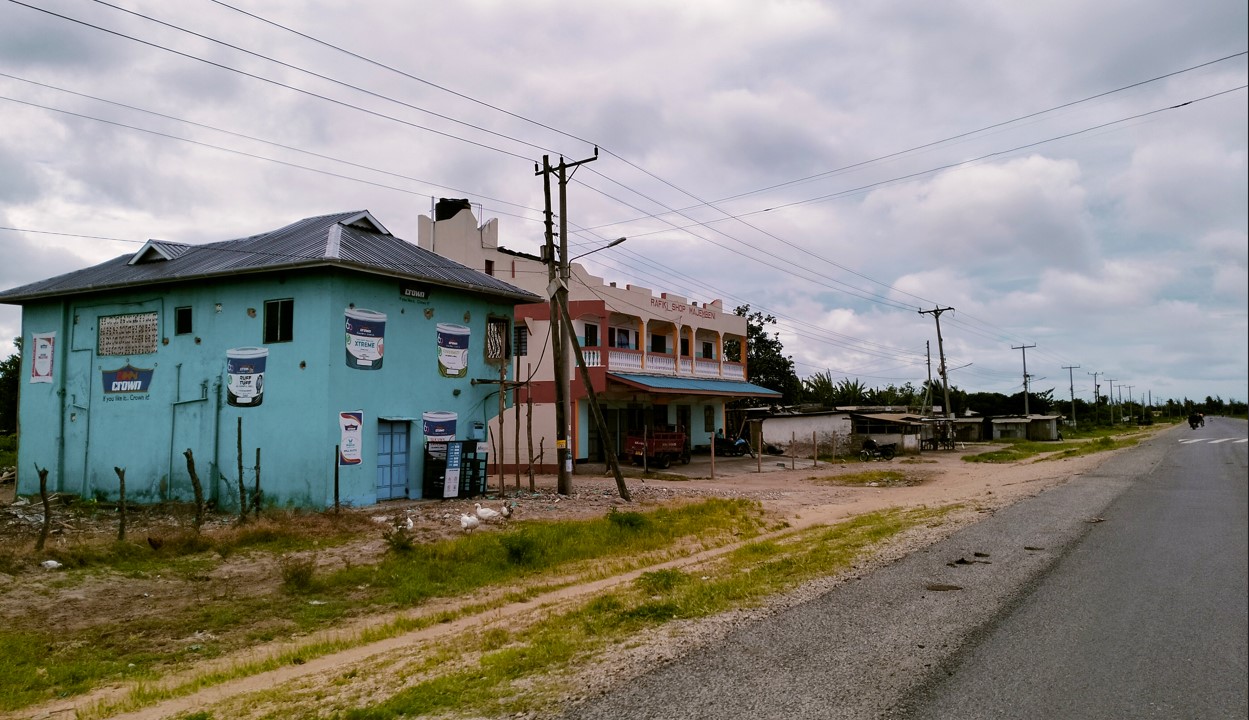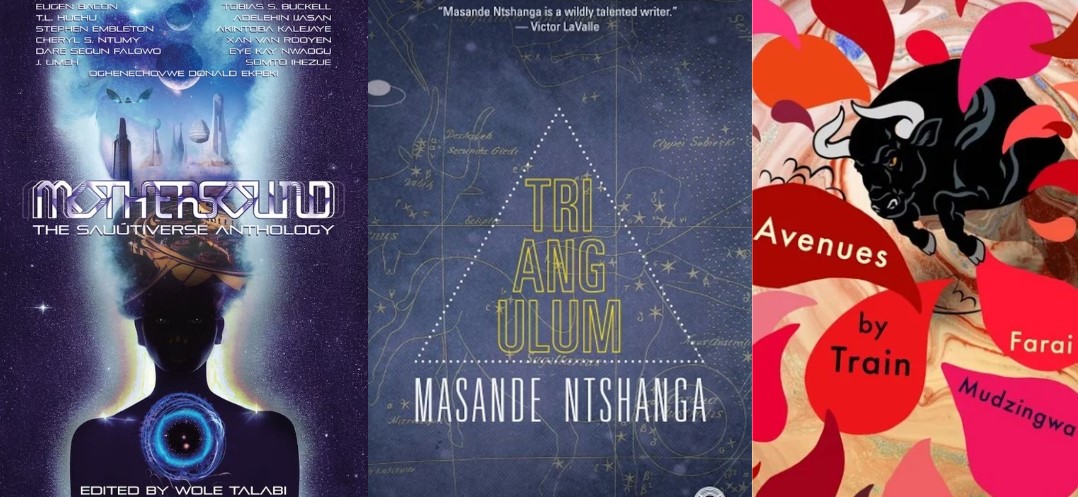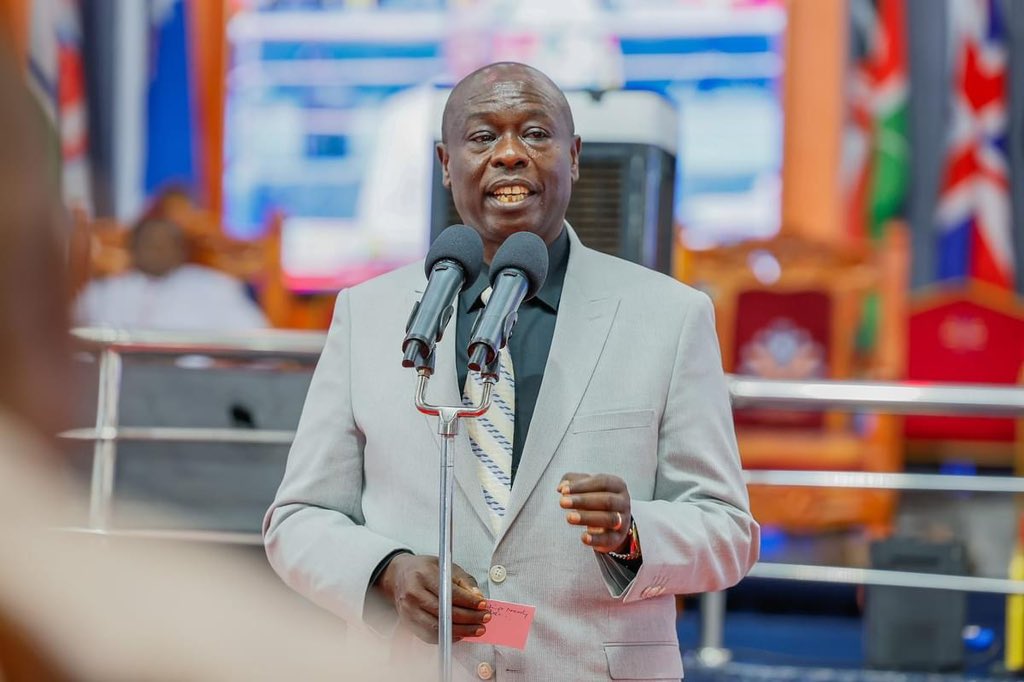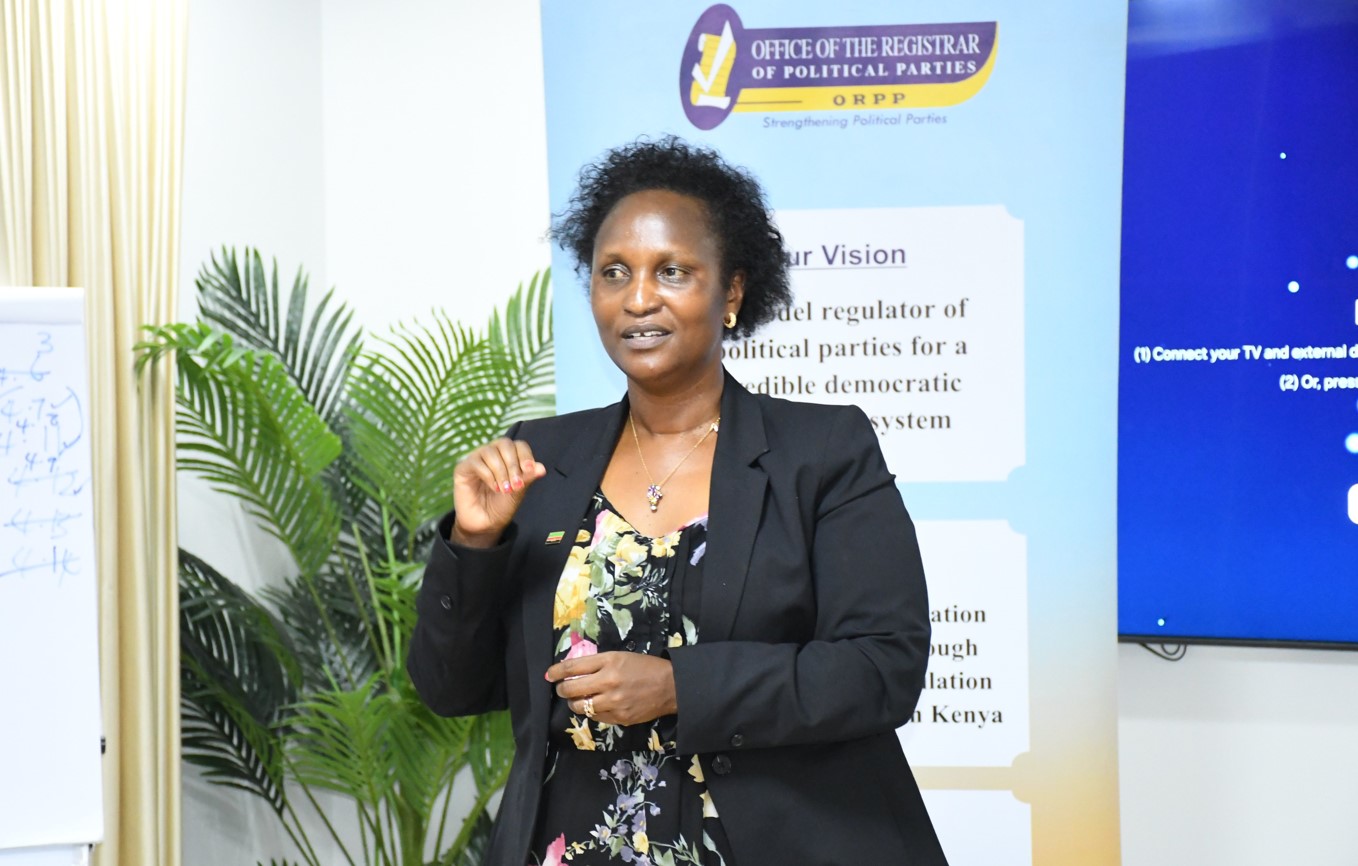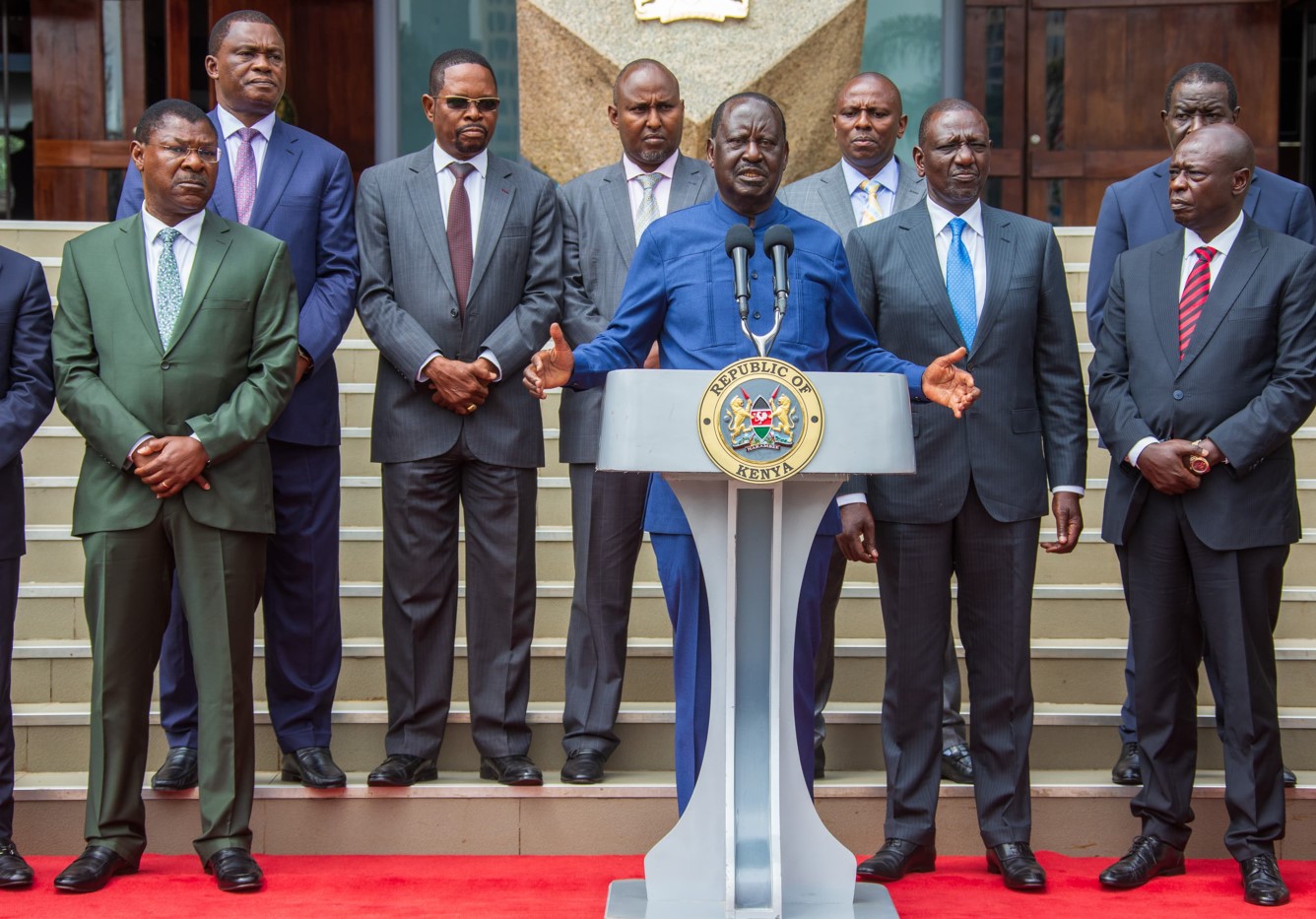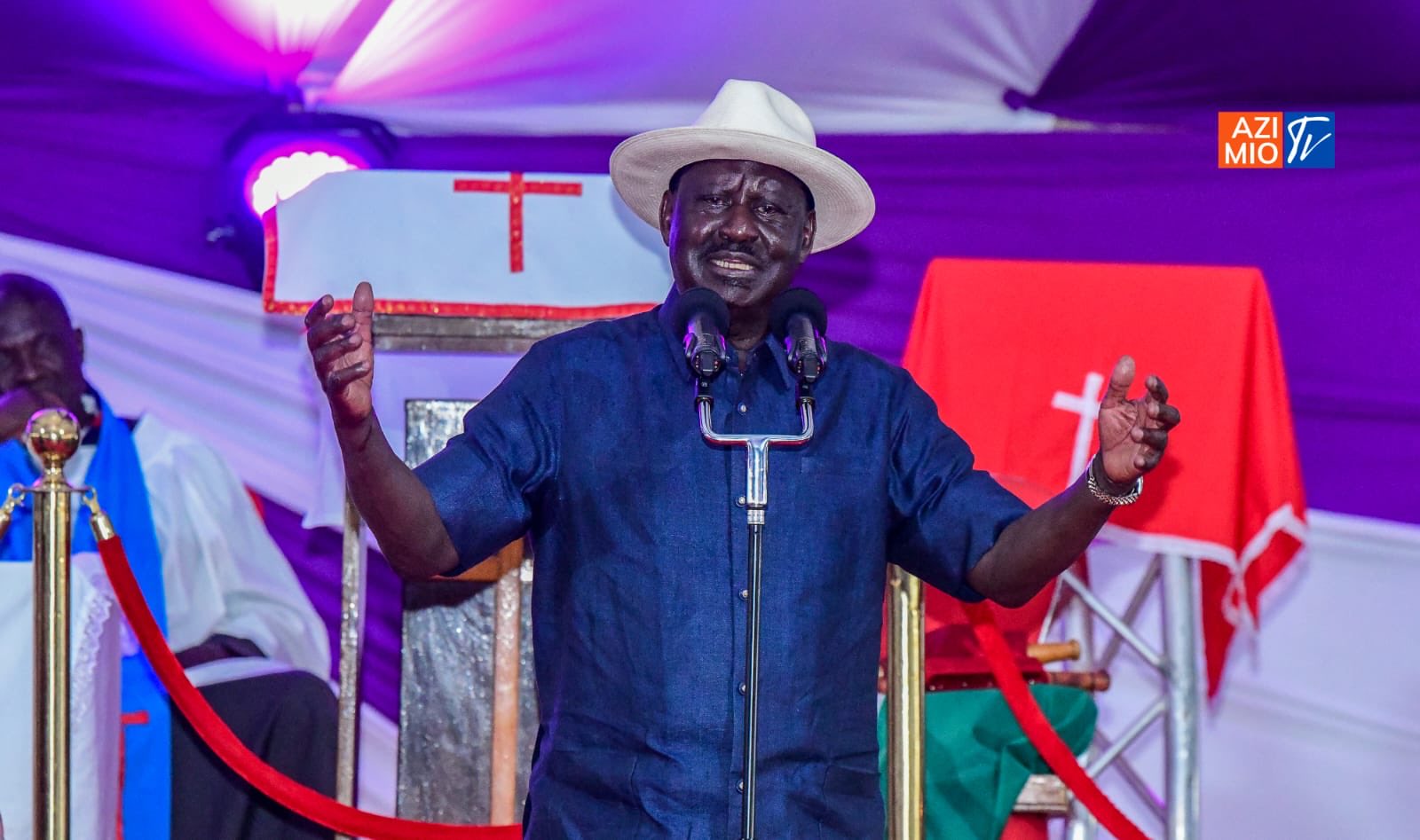From protest to power? Kenyan Gen Z seeks end to politics as usual

By Reuters |
By mid-June, Stella had joined thousands of Gen Z and millennials across Kenya, taking to the streets in a wave of protests that have forced President William Ruto to make a historic U-turn and scrap his reviled law.
When 25-year-old Kenyan teacher Stella stumbled on an X post about a new finance bill proposing taxes on basics from bread to diapers, she brushed it off as fake news.
"I just dismissed it as a politician complaining about something that wasn't true," Stella, who did not want to give her full name, told the Thomson Reuters Foundation as she recalled the clamour on social media that began in May.
Keep reading
- Ruto to Kenyan youths: Don't let anyone convince you to despise your country
- Parliamentary budget advisers warn Ruto against introducing new taxes
- New poetry collection seeks justice for Gen Z protesters killed by police
- International Youth Day: Herstory has been made! Herstory has you on the right side, sheroes!
But as "#RejectFinanceBill2024" flooded her feed, Stella realised this wasn't just political noise. It was a rallying cry from her peers: young, educated, disenfranchised Kenyans.
"Some posted videos breaking down all the new taxes in the bill, others talked about how our parents were suffering with high living costs and compared it with the lavish lifestyles of our politicians. What they said struck a chord. It angered me."
By mid-June, Stella had joined thousands of Gen Z and millennials across Kenya, taking to the streets in a wave of protests that have forced President William Ruto to make a historic U-turn and scrap his reviled law.
Ruto has also sacked his cabinet for a more "broad-based government" and pledged to cut wasteful spending, dissolving state firms and reducing the number of government advisors.
Described as a "youth-quake" in the media, the protests have also forced Kenya's police chief to resign.
At least 50 people died in protests that turned violent, prompting a ban on demos in central Nairobi, a move the force said was designed to stem criminals rather than stifle opposition.
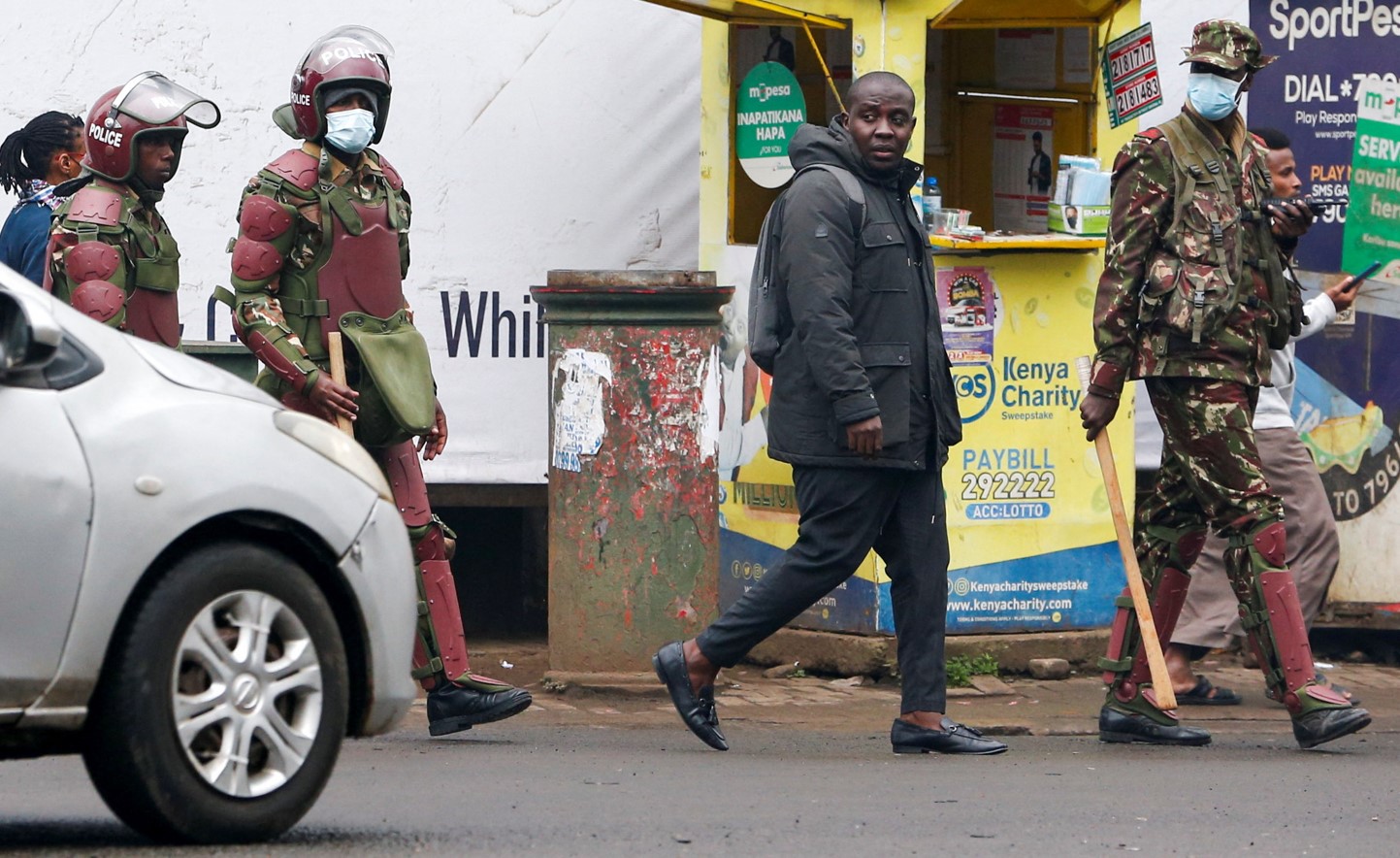 Riot police officers patrol the streets as pedestrians walk along Kenyatta Avenue amid anti-government demonstrations, following nationwide deadly riots over tax hikes and a controversial now-withdrawn finance bill, in Nairobi, Kenya, July 18, 2024. REUTERS
Riot police officers patrol the streets as pedestrians walk along Kenyatta Avenue amid anti-government demonstrations, following nationwide deadly riots over tax hikes and a controversial now-withdrawn finance bill, in Nairobi, Kenya, July 18, 2024. REUTERS
For many youth protesters, the finance bill was just the tipping point that ignited long-simmering grievances over government corruption, squandered public funds, and a scarcity of opportunities for millions of Kenyans.
Emboldened by their newfound influence, young Kenyans want good governance and accountability. They are also plotting how to elect their chosen leaders in the 2027 elections.
"It's a pivotal moment in Kenya's history. The youth are renegotiating their citizenship and demanding more political accountability," said Nicodemus Minde, a social scientist at the Institute of Security Studies.
"People have hope as these protests are different from others. They are not driven by a political party, or a particular tribe or ethnicity - they are driven by a new generation who are more politically aware and very tech-savvy."
CORRUPTION, OPULENCE AND NO JOBS
A vibrant economy in East Africa, Kenya boasts strong revenues from farming and tourism. But despite an average of 5% annual economic growth over the last decade, the benefits have not trickled down.
One in three of Kenya's 50 million people are aged 15-34, yet this group suffers the worst unemployment, with 67% out of work, official data shows.
Moreover, over a million young Kenyans enter the labour market annually without skills, and it takes the average graduate five years to find a job.
Since Ruto took office nearly two years ago, the disconnect between his promises and reality has widened.
Kenyans grapple with skyrocketing living costs and increased taxes, all the while witnessing rank government extravagance.
Frustration has mounted over Ruto's frequent international travels and corruption scandals involving top officials.
Kenyans have also seen public funds allocated to political appointees and first family offices and watched politicians flaunt their luxury cars and private helicopters.
All this has earned Ruto the nickname "Zakayo" - Swahili for Zacchaeus, the biblical greedy tax collector. He is also routinely mocked by the media as "King of the Skies" for clocking up 62 trips to 38 countries in 20 months.
"The finance bill was just the tip of the iceberg," said Nerima Wako-Ojiwa, a political scientist and executive director of Siasa Place, a youth charity.
"People are outraged by all the corruption scandals and opulence of our leaders," she said during an X-space discussion.
THE GEN Z EFFECT
Trouble began in May when the Finance Bill 2024 was unveiled in parliament, and Kenyans swiftly turned to platforms such as X and TikTok to thrash out its potential impact.
It proposed taxes on a host of items, from bread to cooking oil, and sanitary pads to money transfers.
Ruto said the additional taxes would raise $2.7 billion and help cut Kenya's high debt, which has made borrowing difficult and squeezed the currency.
Within weeks, Gen Z and millennials were creating engaging digital content - cartoons, skits, videos and explainers - and the hashtags #RejectFinanceBill2024 and #RutoMustGo took off.
They engaged influencers and celebrities to harness their networks and translated the bill into different Kenyan languages to reach older and rural populations.
Developers built AI tools such as Finance Bill GPT, which calculates the bill's potential impact on prices, and Corrupt Politicians GPT, a chatbot that flags up scandals.
Alongside the demos, Kenyans tried some unorthodox tactics: crowdsourcing MPs' personal details so their phones were spammed and mounted demonstrations outside their offices and homes.
"It was incredible to see how organic the whole movement was," Patrick, a 24-year-old paralegal, told the Thomson Reuters Foundation. "We all felt angry and wanted to change the status quo."
As protests moved from the digital space to the streets on June 18, lawyers hosted discussions on citizens' rights in the event of an arrest, while doctors shared first-aid tips.
 Riot police officers stand guard as pedestrians walk along Kenyatta Avenue amid anti-government demonstrations, following nationwide deadly riots over tax hikes and a controversial now-withdrawn finance bill, in Nairobi, Kenya, July 18, 2024. REUTERS
Riot police officers stand guard as pedestrians walk along Kenyatta Avenue amid anti-government demonstrations, following nationwide deadly riots over tax hikes and a controversial now-withdrawn finance bill, in Nairobi, Kenya, July 18, 2024. REUTERS
Their grievances were initially ignored and the protesters were dismissed as "KFC-eating" and "Uber-riding" privileged urban youth by some members of the government.
But as the demonstrations continued, violence mounted with police using tear gas and live bullets against unarmed youth.
The protests have also been infiltrated by criminals looting and destroying property, with parliament even briefly stormed.
According to the Kenya National Commission on Human Rights, at least 50 people have died and hundreds have been injured.
'THE OFFICIAL OPPOSITION'
Last month, the pressured president withdrew his finance bill and in recent days has sacked most of the cabinet.
He has also announced plans to axe 47 state corporations, halve the number of government advisors, and pull funding to the offices of his wife and deputy's wife.
"Recent events that necessitated the withdrawal of the Finance Bill ... have brought us to an inflection point," said Ruto last week.
He has now promised a government of national unity to deal with the debt crisis, better job opportunities, and less waste and vowed to "slay the dragon of corruption".
Protesters, too, have promised no letup until Ruto resigns and they win systemic change to clean up politics.
Every day, thousands gather on X spaces to keep up the momentum, resolving to hold leaders to account.
They debate constitutional rights and the merits of protest against passive acts of resistance such as recalling their MPs.
They talk of revolution while pledging allegiance to peace and the law. They sign off with a salute to their "fallen comrades" and end their comments with the words "Viva".
Their demands include an independent probe into the deaths of demonstrators, an audit of Kenya's national debt, and the formation of an independent electoral commission.
Harnessing tech, they have created websites that track government promises against actual results, and are examining upcoming legislation to keep the public abreast.
Moves are also afoot to recall lawmakers ahead of the 2027 elections, with some constituencies already collecting signatures.
Gen Z and millennials are lending civic education to their communities and encouraging everyone to register to vote.
Analysts said the strength of the grassroots movement lies in the absence of any one figurehead, melding a generation that has cast off tribal affiliations.
"The opposition was silent and absent on this issue and it seems that Gen Z with their new political discourse is filling that gap," said Minde.
The youth-led protests are also resonating in other African countries that are grappling with similar popular grievances. On social media, Nigerians, Malawians and Ugandans are planning their demonstrations for reform.
The young has had a taste of politics - and likes it.
"We are not our parents who had to live in fear," said Zabron Mwangi, a Gen Z protester in an X space discussion.
"These protests have changed the game. Gen Z is now the official opposition in Kenya - this is the new normal."
Reader comments
Follow Us and Stay Connected!
We'd love for you to join our community and stay updated with our latest stories and updates. Follow us on our social media channels and be part of the conversation!
Let's stay connected and keep the dialogue going!



